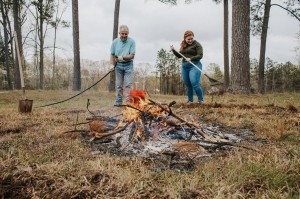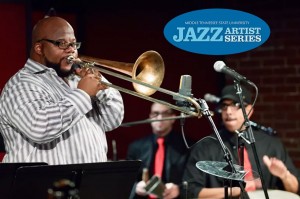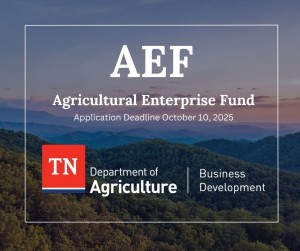Megan Trotter
Two Tennessee Tech University professors and their graduate student are tackling the problem of the state's shrinking northern bobwhite quail population by combining two disciplines: biology and computer science.
Wildlife ecology associate professor Brad Cohen has teamed up with computer science professor Doug Talbert and grad student Mateo Gannod on a project utilizing artificial intelligence (AI) to identify the bobwhite's distinctive call from recordings captured by devices called Autonomous Recording Units (ARUs).
"Back in the day, when you were trying to survey animals that made sounds, like birds, you had to just stand there and listen for a while," Cohen said. "And of course, you could only do that for so many hours in a day and so many days a week."
Now, these ARUs are left out in the field to record the bird calls for as little as a few hours or as long as several weeks. Gannod, a computer science graduate student, then takes those recordings and runs them through an AI software originating from the University of Georgia that he has tweaked to better identify the call of the northern bobwhite quail in the ecosystems of Tennessee.
"We are working closely with Tennessee Wildlife Resources Agency to identify occurrence and abundance of bobwhite on several wildlife management areas (WMAs)," Cohen said. "Bobwhite are what we call habitat specialists: they need very specific things in their environment, so their geographic range has become really constricted across Tennessee. Back in the 60s and 70s, they were very common; now their populations have declined by as much as 90%, if not more."
Monitoring elusive species like the bobwhite can inform policy decisions on conservation. Gannod hopes to develop the recording analysis software into a user-friendly app that can be deployed more widely.
This partnership between two different disciplines began years ago when Cohen and Talbert began collaborating on using satellite data to estimate wildlife habitat quality. The growing applications of technology are making it more important than ever that professors look outside their discipline to see what kinds of progress partnerships can bring.
"I am excited about the partnership with Brad," Talbert said. "The teamwork helps students in both disciplines. Pairing a machine learning practitioner with experts like Brad and his team is how a lot of important work gets done in the real world."










